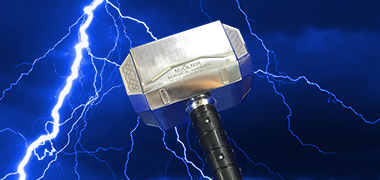
AI Occupational Exposure score unavailable For more insight, research the specific tasks and skills required for the role.
Explore all careersA Blacksmith shapes metal using heat, creating new pieces or repairing existing ones with tools and machinery, while ensuring safety and detail.
Get qualified to work as a Blacksmith with a course recognised across Australia. Speak to a training provider to learn more.
In Australia, a full time Blacksmith generally earns $1,500 per week ($78,000 annual salary) before tax. This is a median figure for full-time employees and should be considered a guide only. As you gain more experience you can expect a potentially higher salary than people who are new to the industry.
 Courses.com.au Team
Courses.com.au Team
Although the number of people working in this industry has remained stable in recent years, it is a profession hiring a small number of people. There are currently 250 people employed as a Blacksmith in Australia. Blacksmiths may find work across all regions of Australia.
Source: Australian Government Labour Market Insights
 Courses.com.au Team
Courses.com.au Team
To become a Blacksmith, enrol in a Certificate III in Engineering – Fabrication Trade. This course offers an introduction to metal fabrication and welding and will explore various techniques used in this industry. You could also consider a Certificate IV in Engineering (Foundry Technology) or a Certificate III in Engineering – Mechanical Trade.
 Courses.com.au Team
Courses.com.au Team



A Blacksmith uses heat to shape metal for a range of purposes. You might create new metal pieces to given specifications or you might perform repairs to existing products. Once metal has been heated to a suitable temperature, you might hammer or cut it with hand tools or machinery. Blacksmiths might also use moulds and finish their pieces with various types of finishes.
Blacksmiths need to have good fine motor skills and excellent attention to detail. You’ll need to be able to adapt your skills to a range of settings and should be able to communicate with clients to determine their needs. Blacksmiths should be safety-focused and able to work on several projects throughout their day.